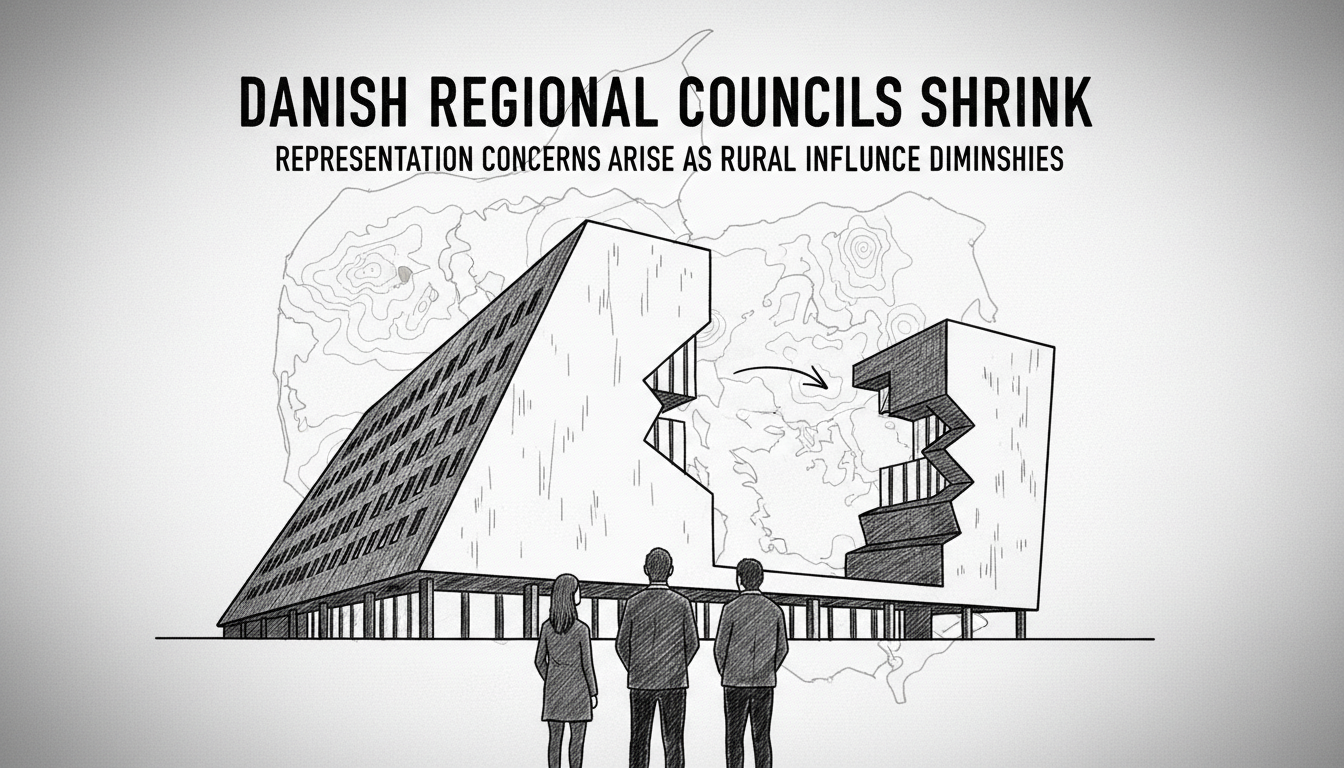Denmark's new healthcare reform reduces regional council sizes across the country. This democratic downsizing worries politicians from less populated areas.
Several current regional politicians fear rural communities might lose their voice. The reform cuts member numbers in three of four regional councils.
Steen Jakobsen, a Liberal Party politician from Region Midtjylland, faces potential removal. He currently ranks 36th among 41 members, but the council will shrink to 31 seats after elections.
'It takes a lot to secure a seat if you come from an area like Struer,' Jakobsen said. 'I worry our problems won't be seen by politicians elected in larger cities.'
In North Jutland, conservative politician Tage Leegaard expresses similar concerns. His regional council will lose 16 seats, becoming Denmark's smallest with just 25 members.
'There's a risk representation from areas like Thy will suffer,' Leegaard stated. 'That's why it's important people vote for local candidates, not just party colors.'
The healthcare reform creates four Danish regions instead of five. Region Midtjylland and Southern Denmark will each have 31 elected politicians. The new Eastern Denmark region gets 47 council members.
Seventeen new health councils will supplement the smaller regional councils. These will include elected politicians from both municipalities and regions.
Health councils will focus on strengthening local healthcare services. Leegaard credits current Thy and Mors politicians for preserving functions at Aalborg Regional Hospital's Thisted department.
Smaller councils mean fewer votes around discussion tables. This could shorten democratic debates during meetings.
Ulrik Kjær, a political science professor and local government researcher, explains the balance. 'Sometimes you want as many perspectives as possible,' he said. 'Other times you have efficiency considerations - discussions need to conclude.'
Smaller councils reduce opportunities for smaller parties and rural candidates to be heard. Kjær notes reduced numbers inevitably affect representativeness.
'When you lower the number, it will disproportionately affect how many types of politicians participate,' the researcher explained.
Kjær cannot pinpoint an ideal council size that balances efficiency and representation. Whether 25, 41, or another number works best remains unknown.
The council reductions reflect a classic democratic tension between efficient governance and broad representation. Rural communities now face the real possibility of diminished political influence in regional healthcare decisions.

